
views
- Lavender represents peace, purity, love, and protection. It is associated with the third eye and spiritual intuition.
- You can use lavender to purify ritual tools and remove negative energy.
- Lavender is associated with personal growth and new beginnings.
Spiritual Meanings of Lavender

Peace and serenity Lavender promotes calmness and tranquility. It is associated with the crown chakra and spiritual connection. It helps calm the mind to promote spiritual clarity and meditation. It has long been used in essential oils and sachets to soothe anxiety.

Purity It is frequently associated with spiritual cleansing due to its fresh, pure scent. Lavender is also associated with physical cleansing, as well, as it’s frequently included in soaps and detergents.

Love Lavender has historically been associated with traditions and rituals for love and marriage. Its soothing aroma is known to evoke romance, and it is still used in many spiritual practices today.
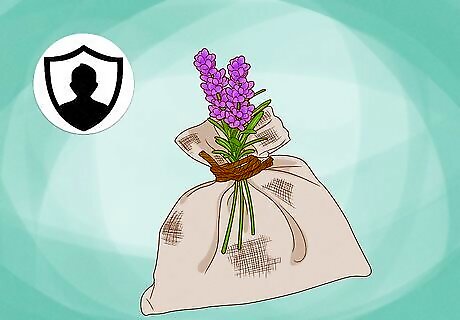
Protection Because of its connections with love and purity, lavender is believed to offer protection from evil spirits and bad luck. It’s often used in sachets and charms to be worn or carried for this reason.
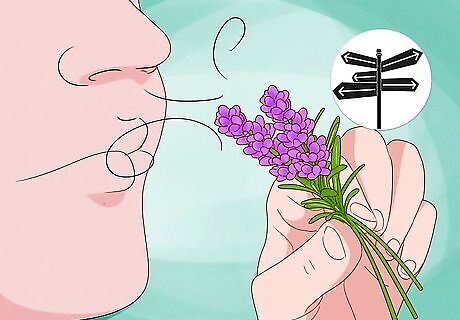
New opportunities Lavender is frequently associated with new beginnings and personal growth. Seeing or smelling lavender could be a sign it’s time to start a new job or follow your passion. Fun fact: this association probably comes from the fact that lavender can grow year-round!

Spiritual growth and healing In many spiritual beliefs, lavender is associated with the third eye. It helps you connect to the spiritual realm and get in touch with your intuition.
Lavender’s Spiritual Uses

Lavender promotes clarity for divination. If you do divination or other psychic work, lavender is great for clearing your mind when connecting with your psychic abilities and the spirit world. When trying to connect with your psychic abilities, light a lavender candle or use lavender essential oils to breathe in the herb’s relaxing scent.

Lavender enhances communication and attraction in love spells. Because lavender is commonly associated with love and sensuality, it’s frequently used in love spells. It’s often used to promote communication in pre-existing relationships, and can also attract new love into your life. When performing a love spell, you can light a lavender-scented candle or use a lavender perfume to enhance your intentions.

Lavender can cleanse and open your chakras. If you work with chakras, lavender oil can be used to purify them. It’s most frequently connected to the crown chakra and helps release negative thoughts. Lavender’s grounding properties are also good for balancing the root chakra. Sprinkle lavender oil over your head to anoint yourself and open your crown chakra. Lavender also promotes open communication and expression associated with the throat chakra.
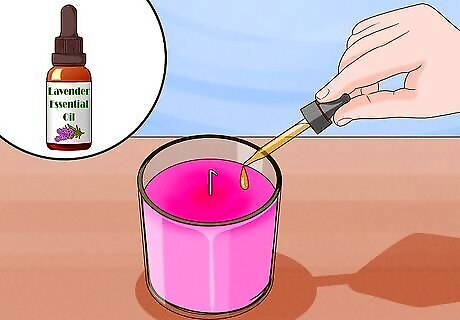
Use lavender oil to purify ritual tools. In modern witchcraft and other spiritual practices, you can use a drop of lavender oil on candles or other items used in your practice to release any negative energy attached to them. You can also purify yourself by adding lavender oil to your bath and soaking in it. Fun fact: “lavender” comes from the Latin “lavare,” which means “to wash.” This is fitting given lavender’s associations with cleansing rituals.

Lavender helps you connect to the Divine Feminine for healing. Lavender has historically been associated with Greek goddesses such as Hera and Aphrodite, so working with lavender helps you connect to their strength and wisdom. It can help you heal emotional wounds and access your intuition.
Lavender’s Historical Significance

Lavender was used in Ancient Egyptian burial rituals. Ancient Egyptians often used lavender to create herbal oils. While these oils were commonly used for perfume and cosmetics, they were also used in rituals for embalming the dead, leading to a connection with the idea of eternal life.

Lavender was used for medicinal purposes in Ancient Greece and Rome. The herb was brewed into a tea to help with sore throats, and it was also commonly used as a laxative. Lavender was also used in communal baths to improve the skin.

In the Middle Ages in Europe, lavender was believed to ward off evil. In addition to practical purposes like killing lice, German nun, mystic, and philosopher Hildegard von Bingen believed lavender would also keep away evil spirits because they were afraid of it. Hildegard also believed lavender helped people fall asleep and recommended using it in the bath, which is still common today. During this time, it was also believed you could keep your lover faithful if you sprinkled lavender water on their head.

In the Victorian flower language, lavender represented friendship. In Victorian flower language or “floriography,” each type of flower had its own meaning, and giving flowers to someone was a way of sending them a message. Lavender was associated with loyalty and was frequently a sign of friendship.
Lavender’s Religious and Cultural Significance
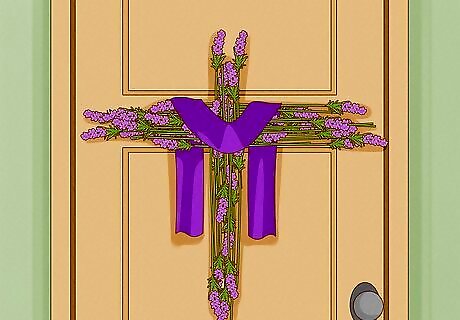
In Christianity, lavender is associated with protection. In the Bible, lavender is called “spikenard,” and it is believed that Mary lay baby Jesus’s clothes on a lavender bush to dry. His clothes then gave the lavender bush its fragrant smell we all know today. Christians then began crafting crosses out of lavender and hung them over their doors for protection.
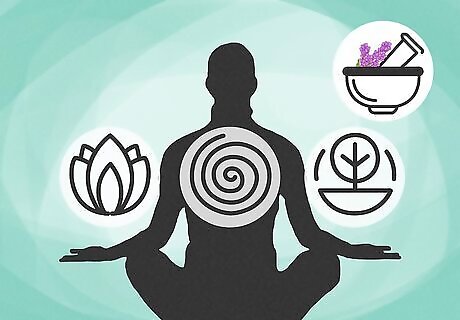
Lavender is used in Ayurveda. Ayurveda is an ancient Indian medical system that uses natural remedies. Because of its associations with peace and calmness, lavender is frequently used in Ayurvedic medicine to promote relaxation. While lavender has been used medicinally across several cultures, it is important to Ayurveda because it helps balance all three doshas. Doshas are the constitutions that control the physical body as well as the emotional and mental state. The three doshas are vata, pitta, and kapha, and they must stay balanced to maintain the body.

In Hinduism, lavender is offered to the gods. According to Hindu legends, lavender originated in Swarga Loka, the heaven of Indra. The herb is also associated with gracefulness and is often used in religious ceremonies and as offerings to gods like Krishna and Lakshmi.
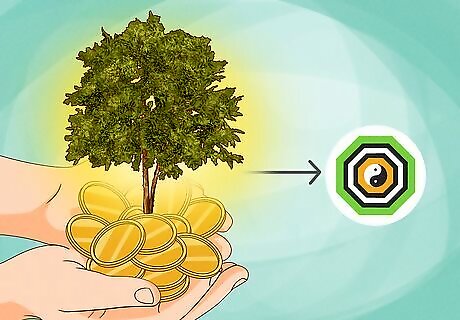
In Feng Shui, lavender promotes wealth and abundance. Purple is traditionally associated with spirituality and royalty across various cultures and practices, including Feng Shui. In this practice in particular, stores and businesses use lavender to attract new customers and bring financial success.

Modern aromatherapy uses lavender to treat nervous disorders. Lavender oil has many benefits including sleep support, pain reduction, and mood regulation. When inhaled through aromatherapy, lavender essential oils stimulate the nervous system. To reduce stress and anxiety, try adding lavender essential oils to your bath or getting an aromatherapy massage from a qualified practitioner.




















Comments
0 comment